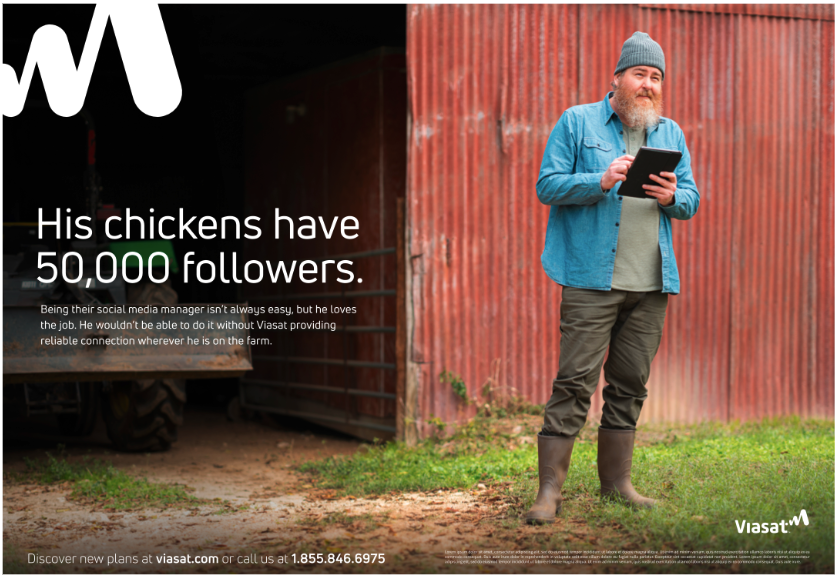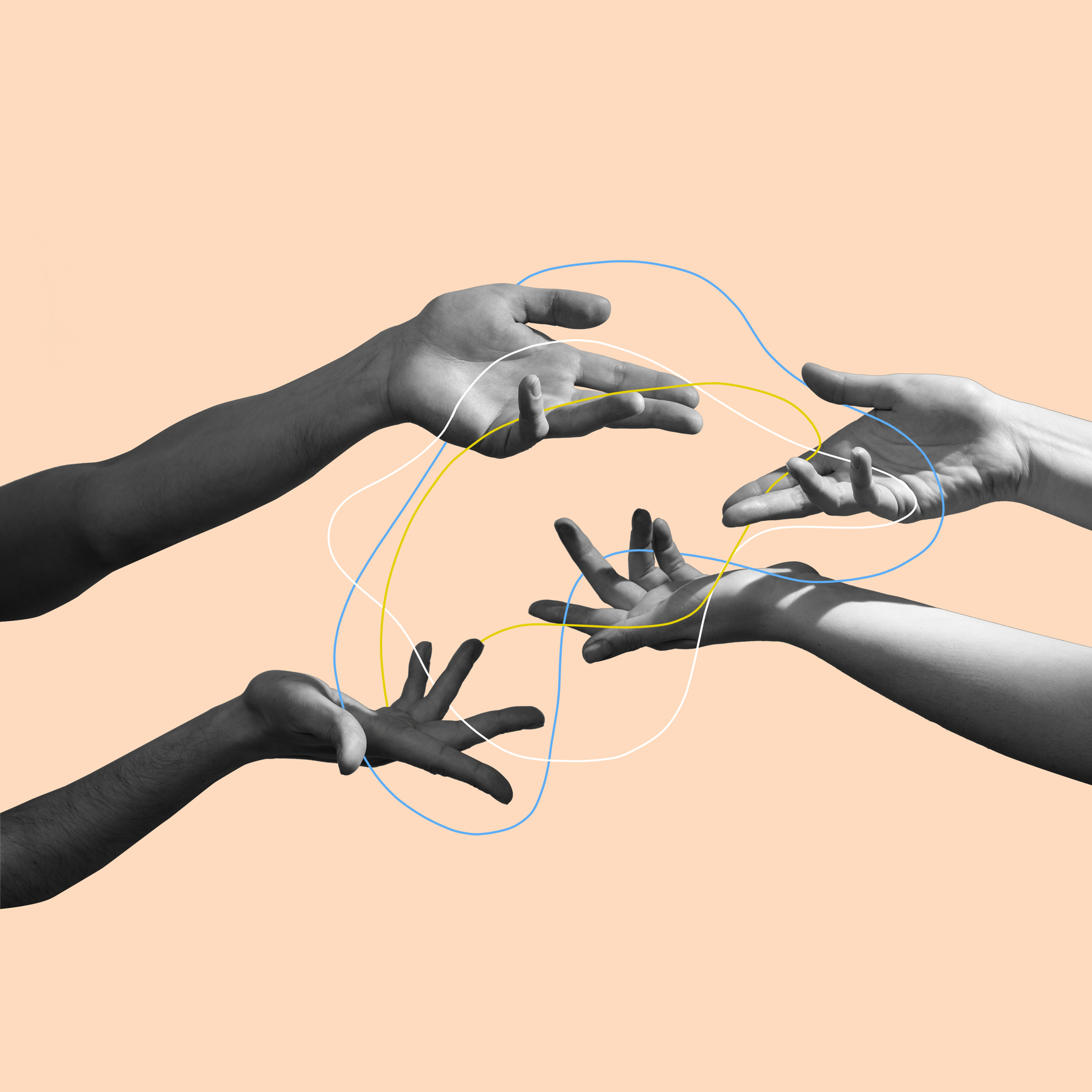From hah to aha—How humor breaks down barriers and humanizes brands
April 01, 2024

Humor. Sometimes it’s funny. Often it’s cringy. It can be so bizarre that you have to talk about it. It can also be a solid “nice try”. Then there’s that ad that didn’t just make you laugh out loud. It left you feeling understood.
When done thoughtfully, comedy empowers brands to forge deeper connections with their audience by tapping into shared challenges and everyday truths. This approach transcends mere marketing and fosters relationships built on trust and understanding. It lets us connect with brands as humans, not just consumers, reminding us that our awkward dates, technology glitches, parenting struggles, and so much more, are all part of this messy yet beautiful journey of being human.
Humor in advertising and branding has graduated from aimlessly poking fun. Consumers are more sophisticated, eager, and curious than ever, and they’re seeking genuine connections with brands that identify with their real-life experiences.
Don't fear funny
Culture shapes marketing and marketing shapes culture. It’s no surprise there have been dips in comedic advertising during sensitive periods like 9/11, the 2008 financial crisis, and most recently the COVID-19 pandemic. But humor’s decline goes beyond specific events. Mocking, once a common comedic trope, is no longer cool. Stereotypes like the “bumbling dad” are outdated and harmful. As a culture, we’re constantly evolving and growing more aware. We expect the same from brands.
The initial reaction to this may be: this is why humor is so hard! It’s too easy to get booed off the stage. Or canceled. Even the 2024 Oscars couldn’t stop themselves from a commercial that marred the ceremony with jabs at their host’s unfunniness, men’s aloofness, and the academy’s snubness. A crass attempt at humor that fell flat.
But comedy, used thoughtfully, can be a powerful tool.
It’s an opportunity to build a personality that resonates with your audience, that speaks their language and shares their sense of humor. It’s about understanding their world, their everyday conversations, their inside jokes, their random thoughts. These authentic insights and truths are what can truly humanize your brand. Your campaign may not be that funny to everyone, but it will connect with your target audience because it reflects their reality, values, and imagination
Meet them where they are. Then make them laugh
There’s a time and place for a celebrity appearance. Or a little shock-vertising. But if you want to explore humanizing your brand through humor, taking a step back from what’s tempting is step one.
Start by reflecting on your brand’s current identity: how do your customers perceive you? Is there a cultural event you can authentically participate in? Liquid Death extended their stance on being hardcore about ending plastic bottling by showing kids “Getting Wasted” (on water, of course) during the Super Bowl. What’s more metal than that?
Embrace your brand’s quirks, even the seemingly negative ones. Cheetos capitalized on the reality that their orange-dusted fingers might be the secret sauce behind numerous tech innovations. Their “Hands-Free” campaign playfully hacked the tech industry, showing self-awareness of their messy (yet beloved) reputation.
Instead of chasing a generic laugh, build a narrative around an underlying truth. Tap into daily struggles, irrational fears, passions, and beliefs. Apple’s “RIP Leon” showed how their new unsend text feature could be a timely hero in an unfortunate situation. It’s a perfectly extreme version of that text we all wish we could take back.
Approaching humor in these ways transcends the pressure of being funny. You’ll foster distinctive emotional engagement and possess genuine persuasive power. Your brand becomes a friend, someone who just gets it.
At Envoy, we follow a process and pursuit to discover eye-opening, human truths that get us thinking layers below the obvious. We seek those opportunities to spark relatable humor and carve out unique voices that resonate with diverse audiences.
Connecting through laughter
Satellite internet company, Viasat, asked us to build an awareness campaign that positioned them as a reliable provider in remote areas where getting online can be tough.
By gathering category, culture, and people insights, we found a unique human truth: for people living off the beaten path of high-speed connectivity, internet that works, isn’t measured in bits and bytes: It empowers a shared pursuit to connect with what matters most. This got us thinking—what happens when the internet doesn’t work?
In research, we learned how people who couldn’t get working internet at home would seek it out in other places—cafes, libraries, and even other people’s networks. To bring this truth to life, we decided to give the behavior a name: Piggybacking.
A narrative hilarious by nature came to life. One family tells the story of their pre-Viasat days, when “borrowing” internet meant a game of hopping between cafes, libraries, and even neighbors’ networks. With Viasat, their piggybacking days came to an end. Now, they can get online without the frustration of unreliable connection.
View the spot here.
This commercial was so well received, that we were tasked to carry the same humorous tone across other Viasat marketing materials, including printed media, website content, and social posts. To illustrate how Viasat transforms the lives of off-the-grid internet users, we crafted different personas of remote individuals pursuing their best lives with Viasat by their side. Meet a passionate chicken influencer in the heartland, successfully running is farm and lots of followers:

Buying potty pads isn’t really the sh*t. Or can it be?
Petco gathered all its pet essentials under one master brand and approached us for a simple packaging redesign. But we saw a chance to completely rethink this often overlooked category.
Let’s face it: shopping for this stuff isn’t exactly thrilling. But the truth is they’re essential nonetheless, and part of the sweet chaos of the pet parent journey. From the messy and unexpected surprises to the unconditional love and laughter, we noticed this category had an emotional spirit that could be uplifted and turn everyday errands into moments of joy.
The result? EveryYay. A vibrant brand bursting with personality and speaking to the full spectrum of pet parenthood experiences. Partnering with illustrator Tiffany Beucher, we paired whimsical illustrations with an irreverent tone to capture the ups, downs, and all-arounds of being a pet parent.
What began as a design request evolved into a brand revolution. With a new look, voice, and everything in between, EveryYay stands out in the essentials category as a heartwarming and hilarious brand that truly understands the pet parent life. Every trip to the store becomes a tail-wagging occasion.


Is this your chance to make your brand more relatable?
Humor allows us to connect with the perfectly imperfect realities of life. By leveraging insights and truths to find the funny, brands can cut through the noise and build meaningful relationships with the world.
While a comedic angle might not initially strike you as the right fit for your brand, don’t dismiss it entirely. Challenge the assumption that it inherently clashes with your brand identity.
Use it as an opportunity to delve deeper and craft relatable moments that resonate with your audience. Humor is not a one-size-fits-all, but by embracing it authentically, you can strengthen your connection and transform customers into lifelong friends.

